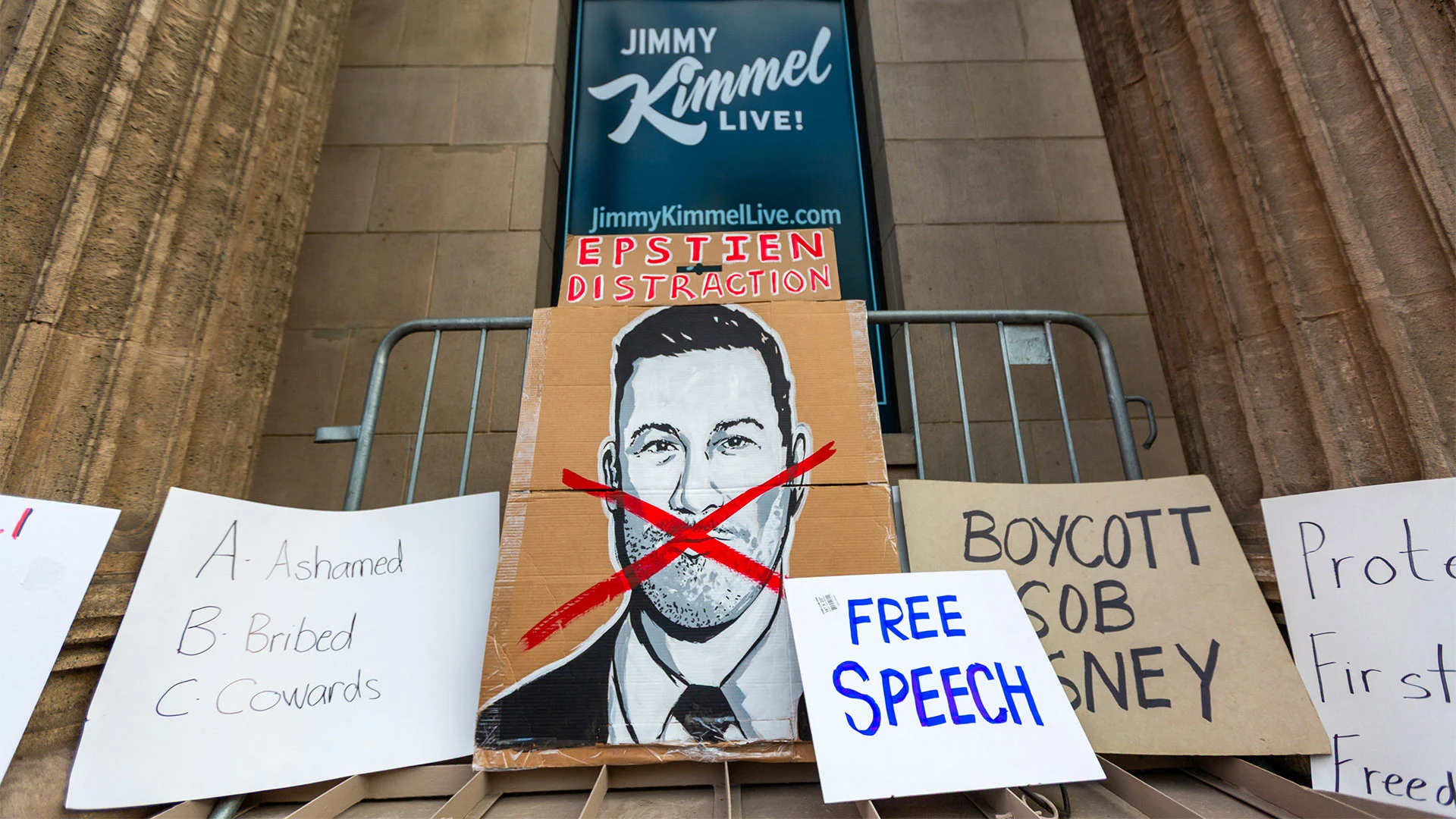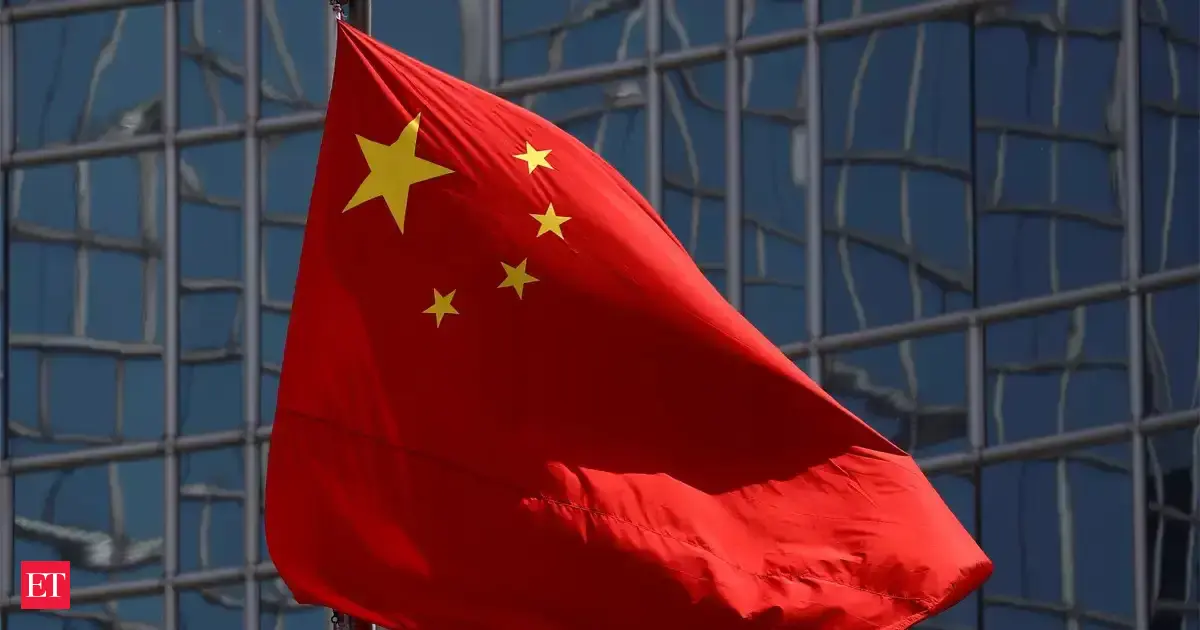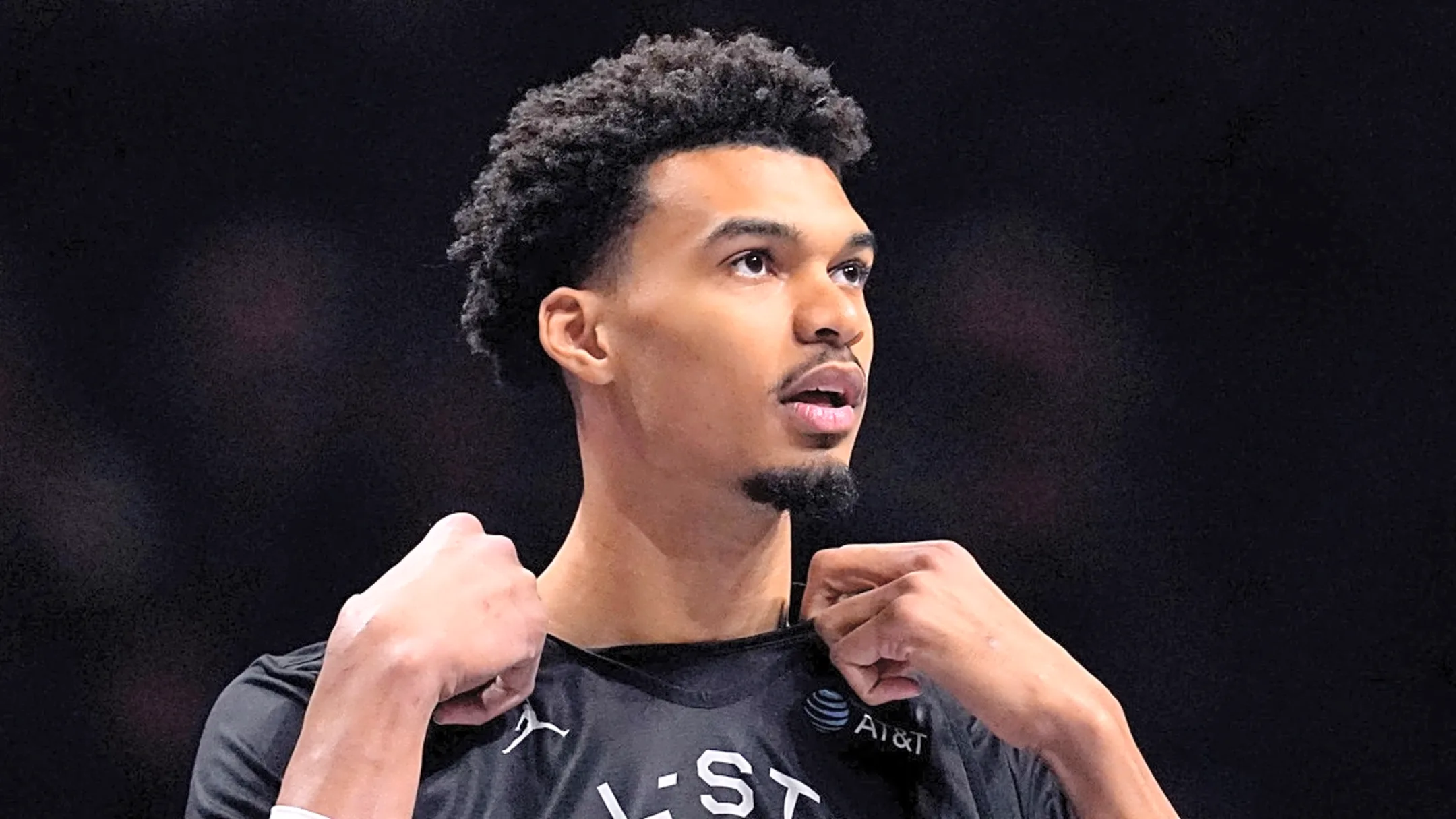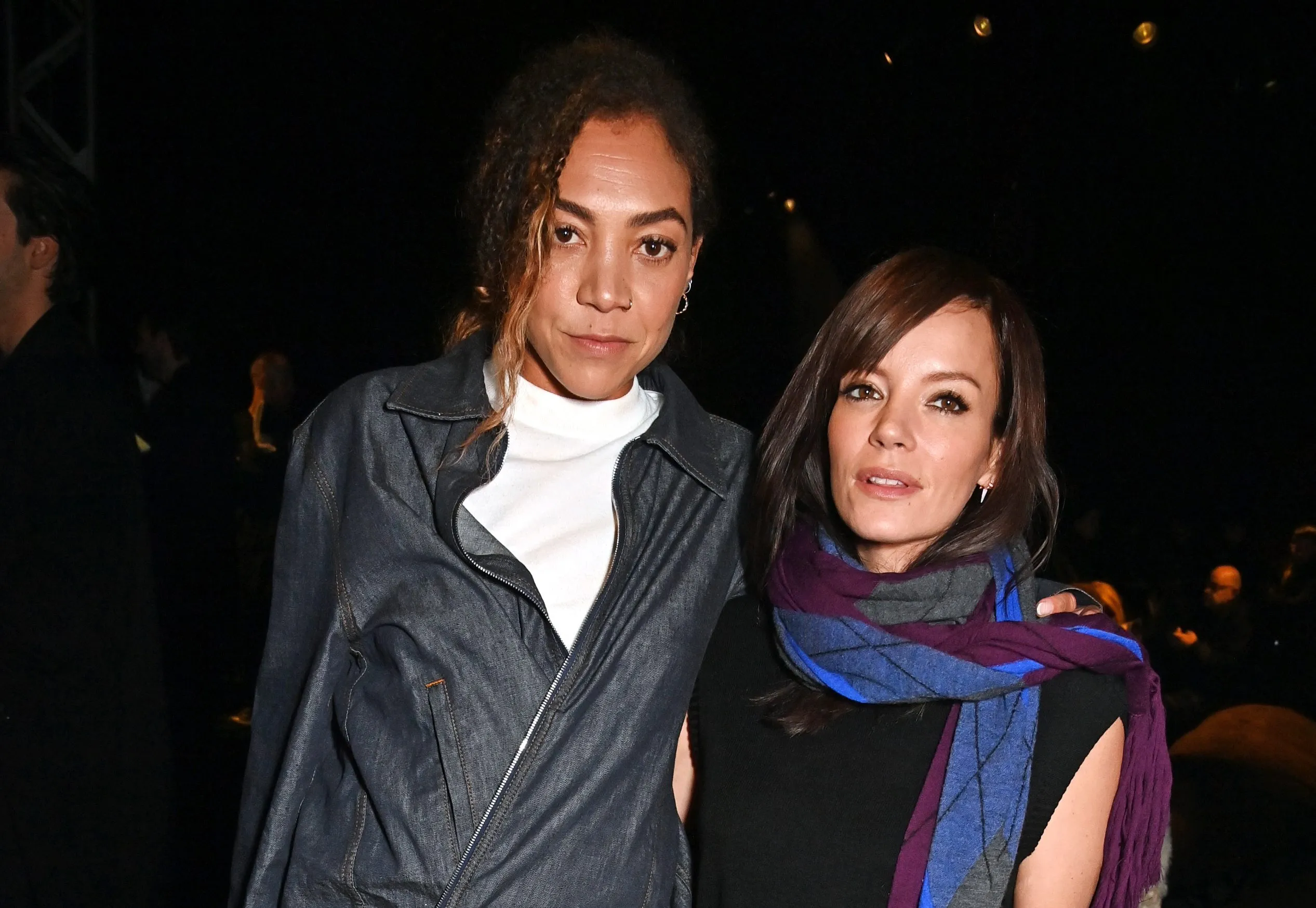
After Jimmy Kimmel made comments about the killing of Charlie Kirk on his show Jimmy Kimmel Live!, ABC suspended the long-running program. The move came in the wake of criticism from Brendan Carr, chairman of the Federal Communications Commission (FCC), who was appointed to the agency by President Trump in November.
However, the choice to suspend Kimmel has also prompted swelling backlash from the other side, with people on social media threatening to boycott the Walt Disney Company, which owns not only ABC but a sprawling empire of media and entertainment properties.
Many online are vowing to cancel their Disney+ subscriptions as well as other Disney-owned platforms like ESPN and Hulu.
The backlash is also spilling into the real world, with hundreds of protesters—including writers and actors—showing up outside Disney headquarters in Los Angeles to protest the suspension of Kimmel’s show and voice their support for free speech.
Subscribe to the Daily newsletter.Fast Company’s trending stories delivered to you every day
Privacy Policy
|
Fast Company Newsletters
Celebrities including Pedro Pascal, Adam Scott, and Wanda Sykes also shared their support online for Kimmel.
Screenwriter and producer Damon Lindelof, who is also the cocreator of ABC’s Lost, shared on Instagram that he would not work with Disney on future projects if the decision is not reversed.
Marvel star Tatiana Maslany, who portrays She-Hulk in the Disney+ series, encouraged the actions of fans to cancel their Disney+, ESPN, and Hulu subscriptions following the news.
ABC, which has aired Jimmy Kimmel Live! since 2003, did not immediately respond to a request for comment. Fast Company also reached out to Hulu, ESPN, and the Walt Disney Company.
Will a boycott actually work?
Some analysts believe that the actual backlash against Disney might be short-lived and won’t result in sustained harm to the entertainment giant, which generated $91.4 billion last year.
Mike Proulx, vice president and research director for Forrester, previously published research in 2022 about “cancel culture,” which he still believes is relevant and rings true in this case.
“What’s changed since this research is that we’ve now seen instances—Bud Light, Target—where concentrated consumer-organized campaigns to cancel a business can, indeed, materially affect a company’s top line, but they’re still the exception,” Proulx told Fast Company.
Proulx said when it comes to the current calls to cancel subscriptions to Disney+, ESPN, and Hulu, he’s watching to see if this will have any effect on Disney’s direct-to-consumer revenue when the company reports its quarterly earnings.
“Whether it has a wide sweeping and lasting effect or not depends, first, on what the resolution to the Kimmel issue looks like,” Proulx said. “But it further depends on the willpower of those who’ve cancelled their subscriptions to not resubscribe.”
He adds, “Chances are, when that ‘must see’ movie or series that everyone is talking about hit Disney+, FOMO will win out.”
Forrester’s previous research has found that threats to cancel tend to outpace actual followthrough, Proulx said.
Elizabeth Parks, president and chief marketing officer of Park Associates, said Disney’s biggest risk in the short-term is potentially losing advertisers, but large-scale subscriber losses for Disney+ or Hulu are unlikely—although it’s certainly still possible.
advertisement
According to research from Parks Associates, annualized churn rates for vMVPD and streaming services on average are 30% and higher, but churn rates for Disney, Hulu, and ESPN+ are relatively low at 17%, 16%, and 9%, respectively.
All politics is local
Parks added that if anything, the public backlash could at least impact local programming.
Nexstar Communications Group, which operates 23 ABC affiliate networks, also said it would remove Jimmy Kimmel Live! starting Wednesday, with Andrew Alford, president of Nexstar’s broadcasting division, saying in a statement that Kimmel’s comments about Kirk’s death “are offensive and insensitive at a critical time in our national political discourse.”
“If there’s public backlash against ABC and Disney due to show suspension, it could affect viewership of ABC network programming locally,” Parks said. “This could then affect ad rates or demand for slots on local ABC stations, especially in markets where ABC-affiliated stations are strong or high-rated.”
Meanwhile, Brandon Katz, director of insights and content strategy at Greenlight Analytics, shared a similar sentiment, saying that while the future is uncertain, backlash against major media companies tends to be temporary.
“While no one has a crystal ball, my gut reaction is that, much like company controversies in the past across the media landscape, including Netflix, this will lead to temporary small-scale churn amid public backlash before returning to normalcy,” Katz said. “The truth of the matter is that—right or wrong—general consumers just aren’t as phased by these periodic issues that crop up.”
Disney also owns Pixar, which is home to many family-friendly animated films, and Katz said that with many families looking for programming to entertain their kids, a cancellation might be a difficult decision for parents to make.
“Can parents reasonably explain the cancellation of Disney+ to their young kids?,” Katz said. “The business reality may simply outweigh the sociopolitical considerations involved.”
Shares of the Walt Disney Company (NYSE: DIS) were down slightly on Friday, trading 1.2% lower as of late morning.
Late doomers
During his monologue on Monday’s episode, Kimmel joked that “many in MAGA land are working very hard to capitalize on the murder of Charlie Kirk.”
Following the episode, Carr said that Kimmel’s remarks were “truly sick” and suggested that the FCC had a “strong case” against Kimmel, ABC, and the Walt Disney Company for spreading misinformation.
Kimmel’s removal is another blow to late-night television following CBS’s cancellation of The Late Show With Stephen Colbert, which came two weeks after the network settled a defamation lawsuit with President Trump.
“I absolutely love that Colbert got fired,” Trump wrote on Truth Social following the cancellation of Colbert’s show. “His talent was even less than his ratings. I hear Jimmy Kimmel is next.”
But Kimmel’s suspension also marks a turning point in broadcast TV when it comes to free speech and censorship in entertainment. Joe Berkowitz wrote for Fast Company earlier this week that what happened to Kimmel could be seen as a warning to other TV commentators to watch what they say.
On Thursday, Carr appeared on CNBC saying that the FCC was “not done yet” with the changes in “the media ecosystem.”



